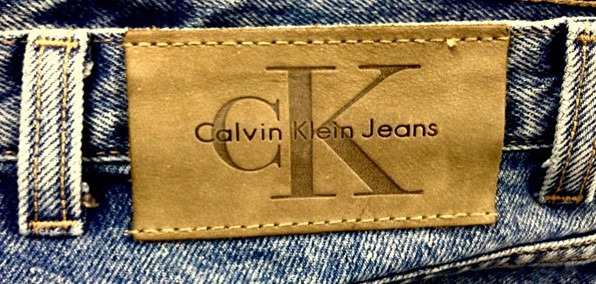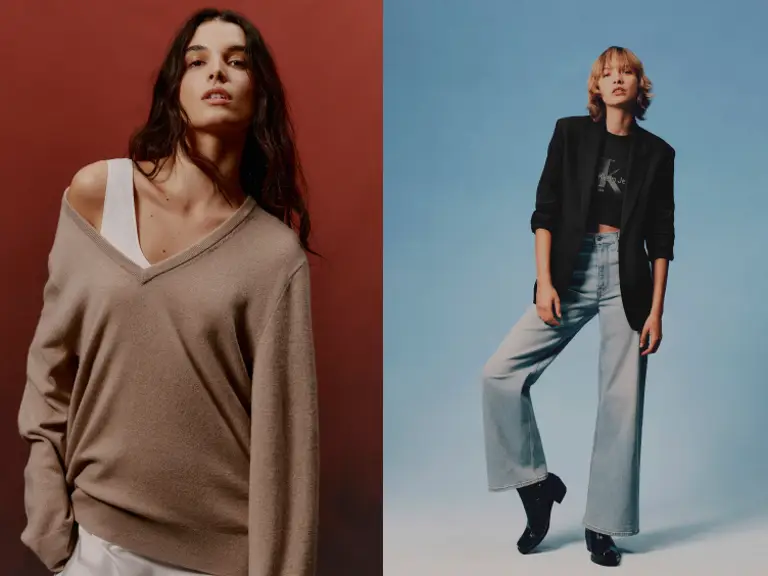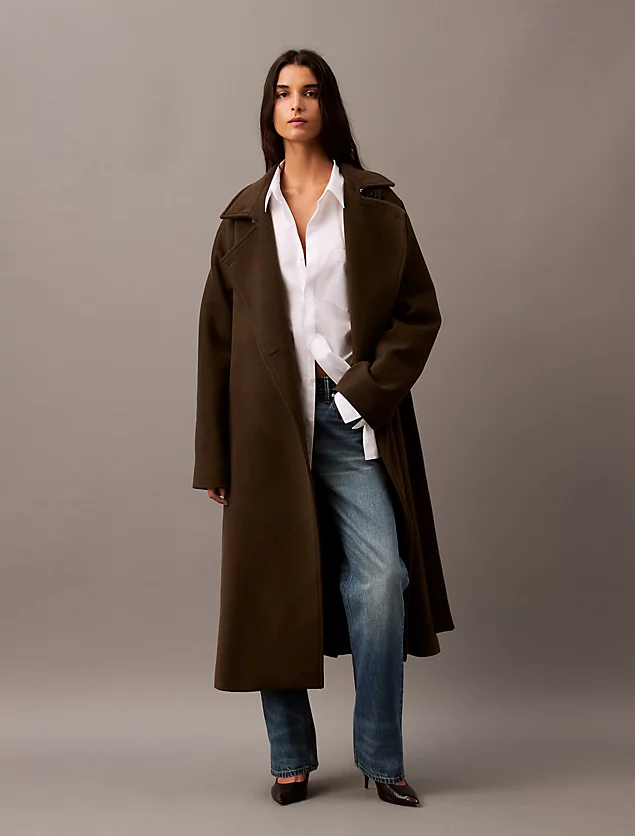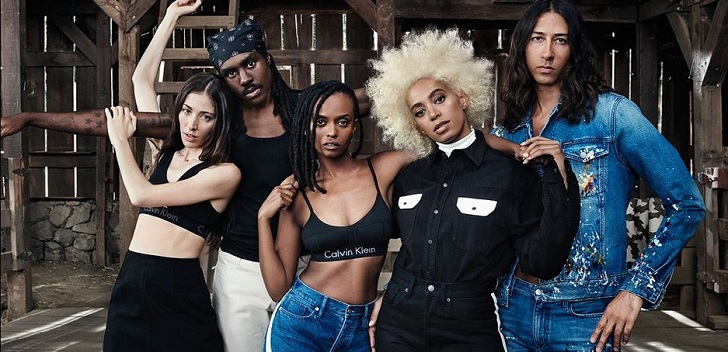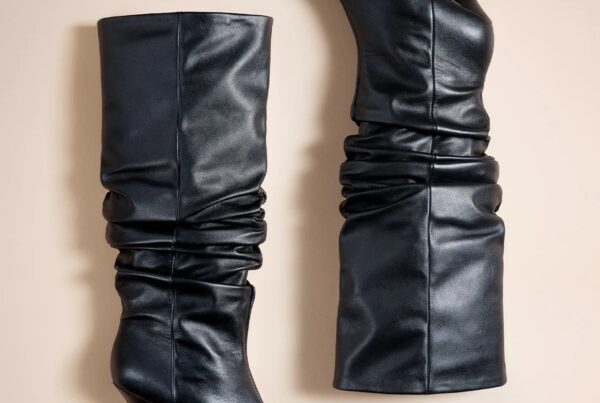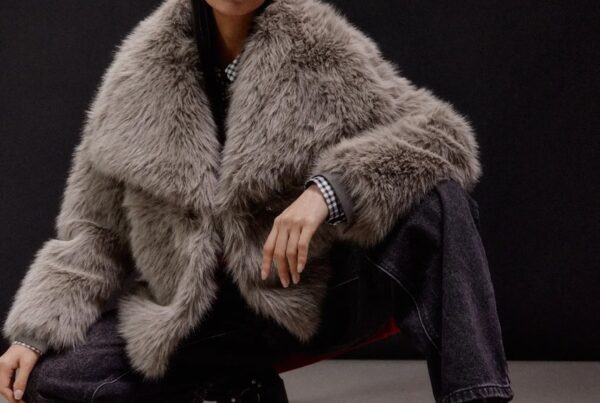The fashion industry is undergoing a significant transformation, driven by the increasing consumer demand for sustainability, inclusivity, and innovation. In this context, Calvin Klein stands out as a leader, effectively integrating minimalist design with eco-friendly practices to address these evolving consumer expectations. This article explores how Calvin Klein’s commitment to sustainability and its influence on personal style not only reshapes its market positioning but also sets a benchmark for the industry at large.
By examining the brand’s innovative approaches, inclusive strategies, and future trends, readers will gain insights into how Calvin Klein is not just adapting to change, but actively shaping the future of fashion. Whether you’re a fashion professional, a sustainability advocate, or a consumer seeking to make informed choices, this article provides valuable perspectives to enhance your understanding of contemporary fashion dynamics.
Table of Contents
Calvin Klein’s Vision of Minimalism in Contemporary Fashion
Calvin Klein has long been recognized as a pivotal voice in the fashion industry, shaping trends and redefining aesthetics through his visionary approach to minimalism. His designs encapsulate a philosophy that prioritizes simplicity while making powerful statements. This article delves into how Klein’s minimalist perspective has influenced contemporary fashion, exploring his unique design practices, the emotional connection behind the clothes, and the lasting impact on consumer culture.
The Essence of Minimalism in Calvin Klein Designs
At its core, minimalism in fashion seeks to strip away the superfluous, highlighting clean lines, neutral palettes, and functional silhouettes. Calvin Klein’s collections exemplify this ethos, merging understated elegance with a modern sensibility. Key elements of his minimalist vision include:
- Neutral Color Palettes: Klein frequently utilizes shades like white, black, gray, and beige to create timeless pieces that can easily blend into any wardrobe.
- Simplified Silhouettes: His designs often feature geometric shapes and tailored cuts that emphasize the body’s natural form, avoiding excessive embellishments.
- Focus on Fabric Quality: Klein’s commitment to premium materials enhances the minimalist aesthetic, ensuring that each piece offers both comfort and style.
These design elements resonate deeply in a world overwhelmed by fast fashion and fleeting trends. By focusing on quality and simplicity, Calvin Klein effectively positions his brand as a beacon of sustainability and longevity.
Emotional Connections Through Minimalist Fashion
The impact of minimalism in Klein’s designs goes beyond aesthetics; it speaks to the consumer’s emotional desires. In contemporary fashion, where individual identity is paramount, minimalism offers a blank canvas for self-expression. Klein’s approach encourages wearers to curate their personal style by mixing and matching timeless pieces that reflect their individuality without overwhelming them.
This emotive strength in Kleins’ minimalist designs is supported by captivating marketing strategies. By presenting fashion as an intimate experience rather than merely an accessory, Calvin Klein fosters a deeper connection between the customer and the product. This connection is evident in campaigns that invite audiences into a lifestyle of simplicity and sophistication, transcending mere clothing to embody an empowering narrative of self-discovery.
Influence on Contemporary Fashion Trends
Calvin Klein’s vision of minimalism has significantly influenced contemporary fashion, paving the way for other designers to explore similar paths. The fashion landscape today reflects an increasing desire for sustainability and timelessness, values that align closely with Klein’s minimalist roots. In particular, trends such as:
- Capsule Wardrobes: The concept of curating a limited selection of versatile pieces draws heavily from Klein’s approach, promoting quality over quantity.
- Slow Fashion Movement: Consumers are becoming more conscious of their purchasing decisions, favoring brands that prioritize ethical practices and timeless designs, reminiscent of Klein’s philosophy.
- The Rise of Athleisure: Klein’s ability to blend comfort with refined designs can be seen in the growing popularity of athleisure, where minimalist sporty designs dominate the market.
These trends reflect a broader societal shift toward appreciating minimalism, signaling a departure from the excess prevalent in earlier fashion cycles. Klein’s design legacy continues to inspire both established fashion houses and emerging designers striving for that balance of simplicity and sophistication.
The Future of Minimalism in Calvin Klein’s Brand
As we look toward the future, Calvin Klein’s vision of minimalism is expected to further evolve while remaining grounded in its core principles. The brand’s ongoing commitment to innovation and its willingness to adapt to changing consumer needs will play a crucial role. The integration of sustainable practices in production and a focus on ethical consumerism are positions that Calvin Klein is likely to embrace as the industry grapples with its environmental impact.
Calvin Klein’s capability to forecast trends and respond to cultural shifts ensures that minimalism will remain not just a design choice but a lifestyle philosophy that resonates with audiences worldwide.
For more insights into Calvin Klein’s influence on fashion history, consider visiting the official Calvin Klein website, which showcases their latest designs and brand initiatives.
Embracing Sustainability: Calvin Klein’s Eco-Friendly Innovations
In today’s rapidly evolving fashion landscape, sustainability has transcended from being a trend to becoming an essential pillar of brand identity. Calvin Klein, a brand synonymous with minimalism and modernity, is at the forefront of the charge towards eco-friendly practices and innovations. As consumers increasingly demand accountability from brands, Calvin Klein has adapted its policies and practices to meet these expectations while maintaining its signature aesthetic.
The Focus on Sustainable Materials
One of Calvin Klein’s most significant steps towards sustainability is the commitment to using sustainable materials in its collections. The brand has introduced a range of garments crafted from organic cotton, recycled polyester, and other eco-friendly fabrics. By prioritizing materials that minimize environmental impact, Calvin Klein not only reduces waste but also promotes a circular economy.
- Organic Cotton: Grown without synthetic pesticides and fertilizers, organic cotton saves water and promotes biodiversity.
- Recycled Polyester: Made from recycled plastic bottles and textiles, this material helps divert waste from landfills.
- Tencel and Lyocell: These are produced from sustainably sourced wood and are known for their biodegradability.
These choices not only attract environmentally conscious consumers but also set a benchmark within the industry for responsible sourcing.
Innovative Production Techniques
Calvin Klein is pioneering various innovative production techniques that enhance efficiency and reduce waste. One such technique is digital printing, which uses significantly less water and energy compared to traditional methods. This shift not only minimizes the brand’s carbon footprint but also allows for intricate designs without the excess waste typically associated with conventional textile printing.
Furthermore, the brand has embraced waterless dyeing technologies, which eliminate the significant water usage commonly associated with dyeing garments. As a result, Calvin Klein effectively preserves crucial natural resources while also improving the quality of its products.
Transparency and Ethical Practices
Another critical aspect of Calvin Klein’s sustainability journey is their emphasis on transparency and ethical practices. The brand openly shares information about its supply chain and production processes, ensuring that consumers are informed about where and how their products are made. This transparency builds trust and reinforces Calvin Klein’s commitment to ethical fashion.
By partnering with organizations that uphold fair labor practices, Calvin Klein ensures that its workforce is treated with dignity and respect. This endeavor not only enhances the brand’s reputation but encourages other fashion enterprises to adopt similar practices.
Retail Initiatives and Recyclable Packaging
Calvin Klein is also innovating in retail, implementing initiatives that encourage customers to participate in sustainability efforts. The introduction of take-back programs allows consumers to return worn-out Calvin Klein items for recycling or repurposing. This initiative not only fosters a sustainable cycle of consumption but also encourages responsible consumer behavior.
Moreover, Calvin Klein is transitioning to recyclable packaging, further reducing its environmental footprint. By replacing plastic with biodegradable and recyclable materials, the brand is actively addressing the growing issue of packaging waste in the fashion industry.
Communicating Sustainability Through Marketing
As part of its mission to promote sustainability, Calvin Klein effectively communicates its eco-friendly innovations through targeted marketing strategies. By highlighting sustainability in their campaigns, Calvin Klein not only educates consumers but also appeals to a growing demographic that prioritizes environmentally responsible brands.
The use of social media platforms to showcase their commitment to sustainable fashion aids in spreading awareness and engaging consumers in meaningful discussions about ecological impact. Campaigns that feature their sustainable practices resonate with customers and draw attention to the brand’s forward-thinking ethos.
In conclusion, Calvin Klein demonstrates that sustainability can seamlessly blend with style and functionality. By embracing eco-friendly innovations, the brand redefines what it means to be a modern fashion leader. As other fashion brands look to Calvin Klein for inspiration, the path towards sustainability becomes increasingly clear, paving the way for a more responsible and eco-conscious industry.
For more insights on sustainable fashion practices, check out Green Matters, an excellent resource for eco-friendly trends.
The Influence of Calvin Klein on Personal Style and Identity
Calvin Klein has long been a titanic figure in the fashion industry, shaping personal style and identity across generations. The brand’s signature aesthetic—characterized by sleek lines, minimalistic designs, and a focus on providing a canvas for self-expression—has not only influenced how people dress, but also how they perceive themselves and their identities.
The Power of Minimalism in Self-Expression
Minimalism is at the core of Calvin Klein’s design philosophy, which promotes simplicity while allowing individuality to shine through. This approach has enabled wearers to adopt a style that is both modern and timeless, encouraging personal expression without overwhelming embellishments. Here’s how this minimalist standpoint contributes to personal identity:
- Emphasis on Clean Lines: The clean lines and structured shapes of Calvin Klein pieces help create a polished look that resonates with fashion-forward individuals.
- Neutral Color Palettes: A selection of neutral tones allows for versatile styling, making these pieces suitable for various occasions and adaptable to personal taste.
- Layering Opportunities: Minimalist designs offer the perfect backdrop for layering, allowing individuals to showcase their unique style combinations while remaining sophisticated.
Calvin Klein’s Impact on Gender Fluidity in Fashion
Calvin Klein has been a pioneer in promoting gender fluidity and inclusivity within fashion. The brand was among the first to blur traditional gender lines with campaigns that featured diverse models and gender-neutral clothing collections. This progressive stance on gender expression has greatly influenced consumers, giving them the freedom to explore their identities through fashion.
- Breaking Stereotypes: By showcasing models of various genders wearing similar styles, Calvin Klein encourages individuals to break away from conventional stereotypes surrounding male and female apparel.
- Encouraging Self-Discovery: The brand’s campaigns often celebrate individuality, prompting wearers to identify with a style that feels true to themselves, rather than conforming to societal expectations.
Cultural Resonance and Iconic Advertising
Calvin Klein’s advertising campaigns have seeped into popular culture, creating a powerful connection between the brand and personal identity:
- Provocative Imagery: Calvin Klein ads have historically challenged social norms, using sensual and sometimes controversial imagery. Campaigns from the ‘80s and ‘90s are often cited for their boldness and sophistication, inviting consumers to rethink their relationship with clothing.
- Celebrity Endorsements: The use of high-profile figures like Kate Moss, Justin Bieber, and the Kardashians in advertising has not only elevated the brand’s status but has also empowered fans to emulate the styles worn by these icons, solidifying a personal connection to the ad campaigns.
The Role of Calvin Klein in Generational Style Shifts
The influence of Calvin Klein transcends mere clothing; it has become a staple in the wardrobes of various generations. Each shift in style that the brand has embraced invites new demographics to explore their identities through fashion. For example:
- 90s Grunge Revival: The revival of grunge in the early 2010s brought Calvin Klein back into conversations as fashionistas sought to reinterpret their identities with a nod to the past.
- The Rise of Athleisure: As athletic wear became a lifestyle complement, Calvin Klein’s merging of sporty and casual styles provided consumers with new ways to express comfort while maintaining an elevated aesthetic.
Conclusion and Forward Look
Calvin Klein’s ongoing influence serves as a testament to the brand’s rich history of promoting personal style and individual identity. As it continues to evolve in response to societal shifts and consumer needs, its relevance is likely to endure, adapting to new trends while still underlining the importance of self-expression. To explore more about Calvin Klein’s innovative approach and current collections, visit Calvin Klein’s official site.
Future Trends in Calvin Klein’s Designs and Market Position
As Calvin Klein continues to evolve in the dynamic landscape of the fashion industry, several trends are poised to play a crucial role in shaping its future designs and market position. Understanding these emerging trends not only provides insight into the brand’s direction but also highlights how Calvin Klein intends to remain relevant and innovative in an ever-competitive environment.
1. The Rise of Smart Fashion
One of the most intriguing trends in fashion is the integration of technology into clothing. Smart fashion refers to garments that incorporate advanced technologies, such as sensors and conductive fabrics, to enhance functionality. Calvin Klein is likely to embrace this trend by incorporating technology that improves the user experience or provides additional features such as temperature regulation, PM2.5 filtration, or even integrated health monitoring.
- Wearable Tech: Collaborations with tech companies could produce innovative pieces like workout gear that tracks fitness levels or casual wear that syncs with smartphones.
- Fashion App Integrations: Calvin Klein may develop or partner to create applications that enhance customer engagement through virtual try-ons, personalized recommendations, and exclusive content, comfortably bridging the gap between the digital and physical retail experiences.
2. The Shift Towards Inclusivity
In recent years, the conversation around inclusivity in fashion has gained significant momentum. Calvin Klein has the opportunity to lead in this area by expanding its size range and diversifying its representation in marketing campaigns. As changes in societal norms continue to elevate the demand for inclusivity, Calvin Klein could:
- Expand Size Options: Broaden its size offerings to cater to a wider spectrum of body types, making its collections more accessible to all consumers.
- Diverse Models: Enhance visibility by featuring diverse models in their campaigns, celebrating different backgrounds, abilities, and ages to resonate with a wider audience.
3. Minimalism Reimagined
While Calvin Klein has historically championed minimalism, the concept is continually evolving. Future designs may explore minimalism through innovative cuts, texture experiments, and layering techniques that provide new life to this classic design philosophy. The focus on clean lines and neutral palettes will likely remain, but with an added emphasis on:
- Artistic Collaborations: Collaborating with contemporary artists could infuse the product line with fresh aesthetics that still honor minimalistic values while appealing to new demographics.
- Functional Designs: The continued blending of form and function will cater to a lifestyle-centered consumer base that seeks both practicality and style.
4. Sustainable Luxury
With sustainability becoming a cornerstone of modern consumer values, Calvin Klein is expected to place greater emphasis on eco-conscious designs. This shift will likely manifest through:
- Recycled Materials: Launching collections that utilize recycled textiles and old fabrics to create new garments without sacrificing on quality.
- Transparent Supply Chains: Focusing on ethical sourcing and production practices to bolster their brand integrity and appeal to eco-conscious consumers.
5. Market Position and Global Expansion
Finally, as the global market for luxury fashion continues to expand, Calvin Klein may aim to enhance its international presence. By forging strategic partnerships in emerging markets, the brand could penetrate new customer bases. Additionally:
- Localized Marketing Strategies: Tailoring marketing campaigns to local cultures and preferences will help Calvin Klein resonate more deeply in diverse markets.
- E-commerce Innovations: Investing in e-commerce platforms and digital experiences can facilitate better connections with consumers, especially in regions where traditional retail channels are less prevalent.
By embracing these trends, Calvin Klein is poised not only to maintain but also to elevate its market position in the coming years. The brand’s commitment to innovation, inclusivity, and sustainability will redefine how it engages with consumers in an increasingly complex fashion landscape. For more insights into Calvin Klein’s innovative steps, visit Lemile Magazine.
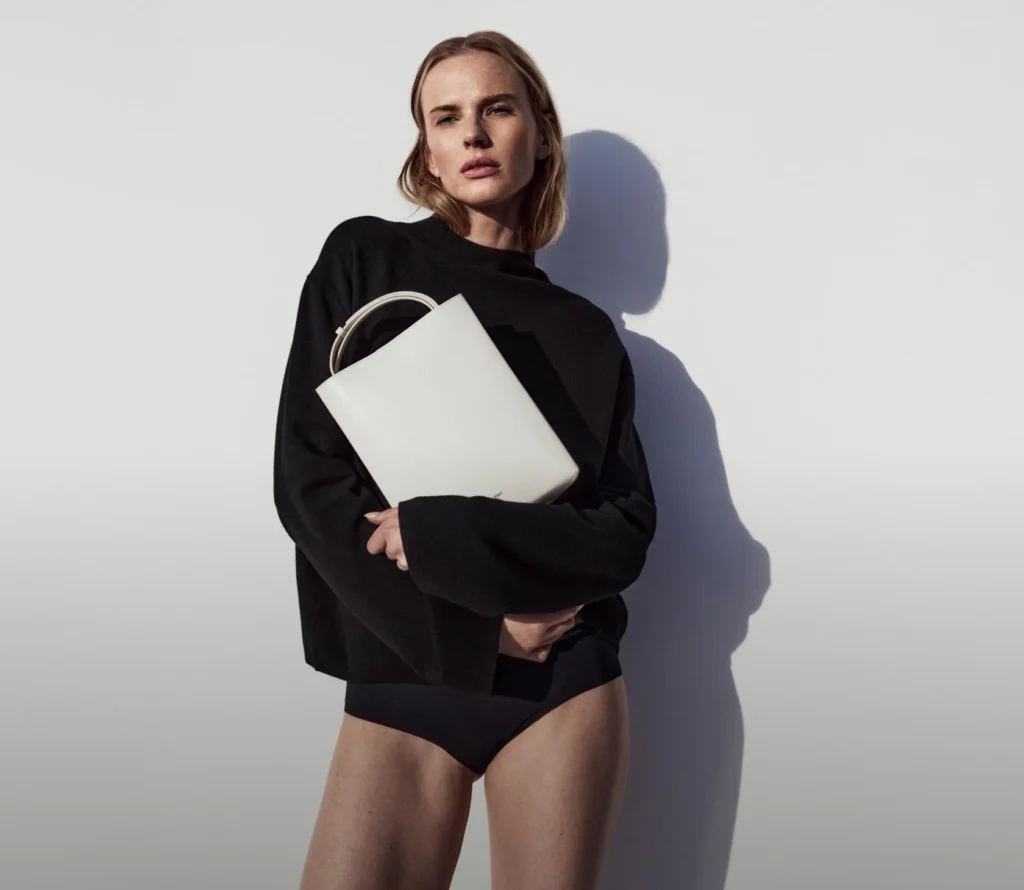
Calvin Klein has established itself as a leader in minimalist fashion and sustainability, focusing on high-quality materials and design simplicity that resonate with consumers seeking individuality and timelessness. The brand’s commitment to eco-friendly practices includes using sustainable materials like organic cotton and recycled polyester, innovative production techniques such as digital printing, and prioritizing transparency in its supply chain. These efforts position Calvin Klein as a model for ethical fashion in today’s market.
Looking forward, Calvin Klein is likely to embrace emerging trends such as smart fashion technology, inclusivity in sizing and representation, and continued innovation in minimalist design. Additionally, a stronger emphasis on sustainability, alongside global market expansions and enhanced e-commerce strategies, will help the brand retain its relevance and appeal to a broader audience. Consumers interested in sustainable and stylish clothing should consider supporting brands like Calvin Klein that align with these values.


